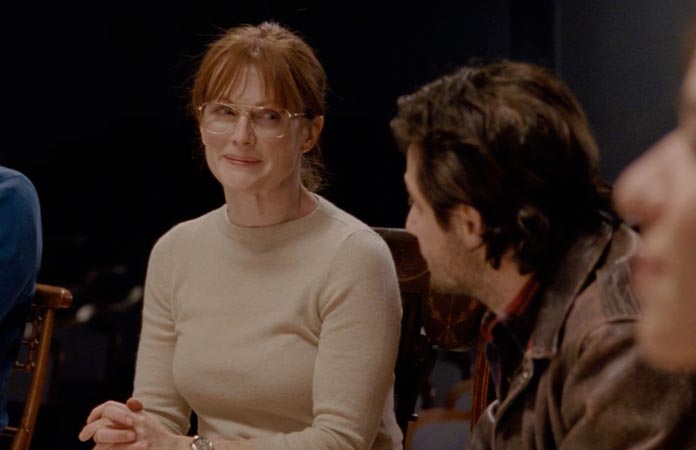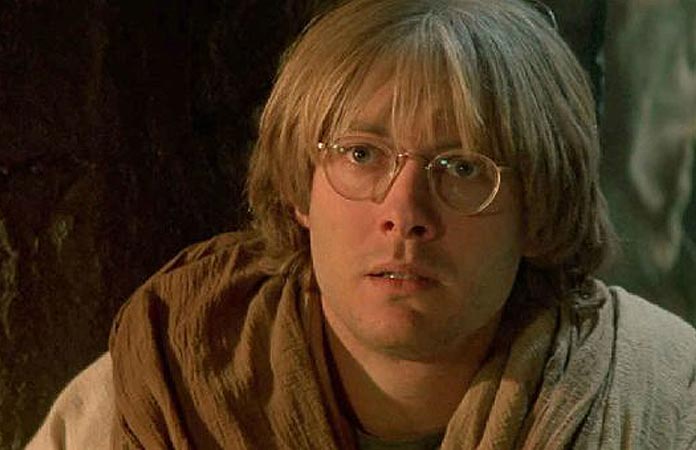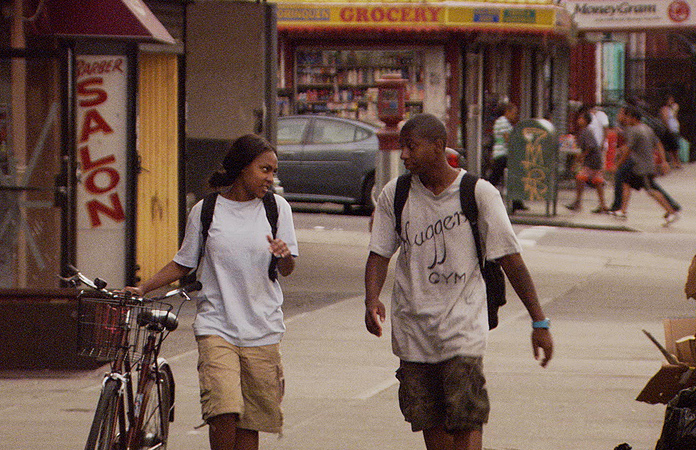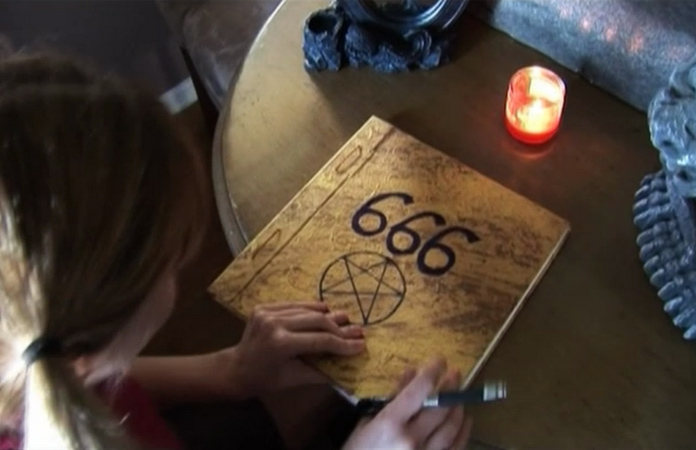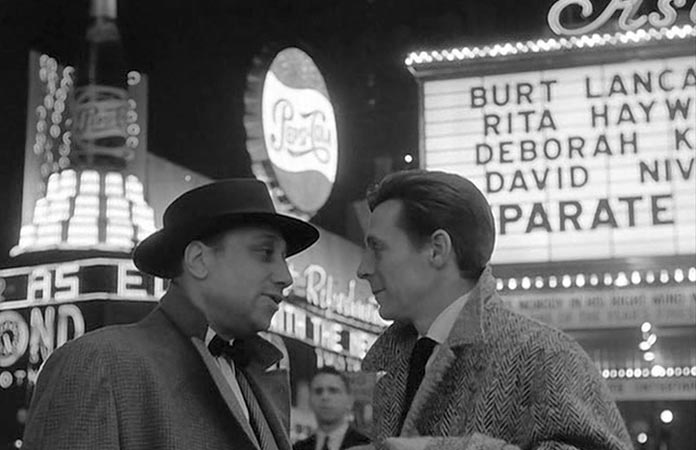DVD Review: The English Teacher
Published on October 5th, 2013 in: Comedy, DVD, DVD/Blu-Ray Reviews, Movie Reviews, Movies, Reviews |Withing the first ten minutes of The English Teacher, I thought, “This is a good, light-hearted comedy.” It’s the tale of Linda Sinclair (Julianne Moore), a high school English teacher who decides to help her former student, a failed playwright suffering from a crisis of confidence, produce his play with the help of the high school’s drama teacher Carl (Nathan Lane).
The film immediately sets up Linda’s character as a single, middle-aged woman—plain but pretty—who watches A Room With A View at home while eating organic food, and its clever voice over narration won me over. Then things got weird. I don’t mean David Lynch weird, but The English Teacher was definitely not the movie I thought it was going to be.
Assemblog: October 4, 2013
Published on October 4th, 2013 in: Assemblog, Feminism, Legal Issues, Movies |New this week on Popshifter: Jeff is terrified of V/H/S/2, besotted with Sunset Graves’ Variant, and a little embarrassed about “Torn Between Two Lovers”; Paul provides a fascinating treatise linking Blade Runner to The Weeknd and Janelle Monáe; Melissa might be in love with both Blitzen Trapper’s VII and The Wood Brothers’ The Muse albums; Chelsea thinks Just Desserts, the new Waitresses retrospective, is quite tasty; and I thrill to White Lies at Toronto’s Opera House, and recommend new music from Blouse and Terry Malts.
Electric Lady (Kiss) Land: Blade Runner and R&B
Published on September 30th, 2013 in: Horror, Movies, Music, Science Fiction |By Paul Casey
“I’ve seen things you people wouldn’t believe. Attack ships on fire off the shoulder of Orion. I watched C-beams glitter in the dark near the Tannhauser gate. All those moments will be lost in time… like tears in rain. Time to die.”
—Roy Batty in Blade Runner
DVD Review: V/H/S/2
Published on September 28th, 2013 in: Current Faves, DVD, DVD/Blu-Ray Reviews, Found Footage, Horror, Movie Reviews, Movies, Reviews |Here’s a fun experiment to try! Sit ten people around a campfire on a moonless night and start telling scary stories. Everyone takes a turn. What you’ll find quickly enough is that not everything scares everybody. One person may be frightened by ghost stories. Another may be terrified of demonic possession tales. One never knows.
That’s the joy—and the potential for failure—found within any horror anthology film. They’re all scattershot. Even the most ambitious of them (I’m thinking The ABCs of Death) have sections that miss the mark completely (although “D is for Dogfight” was a harrowing piece of storytelling).
2012’s V/H/S was the most consistently enjoyable of the new wave of anthologies, gathering together a conclave of great directors, such as Ti West and Adam Wingard, and letting them do what they do best: scare the shit of people. There are some genuinely unsettling moments in the film (that final sequence, directed by Radio Silence, still haunts my thoughts).
This year’s sequel, V/H/S/2, is better in every regard. The framing device is tighter, the stories are better and the scares are more frequent and more intense.
Random Rant: Confessions Of A Stargate Apostate
Published on September 26th, 2013 in: Movies, Random Rant, Science Fiction, TV |Every self-described genre fans harbors some unpopular fannish opinions. Me? I love the 1994 movie Stargate, starring James Spader and Kurt Russell. That’s not the unpopular part, of course —I’m not alone in that at all. What sets me apart from other sci-fi fans and fans of the movie is that I’ve never watched Stargate SG-1, or any of the other shows and direct-to-DVD-movies that spun off it. For a long time, I resolved that I never would. Even now, with my objections gone, I have no immediate plans to see them.
DVD Review: Gimme The Loot
Published on September 23rd, 2013 in: Current Faves, DVD, DVD/Blu-Ray Reviews, Movie Reviews, Movies, Reviews |“If you say in the first chapter that there is a rifle hanging on the wall, in the second or third chapter it absolutely must go off. If it’s not going to be fired, it shouldn’t be hanging there.”
—Anton Chekhov, 1904
Chekhov would probably find Gimme The Loot a frustrating venture. If he stuck it out through the final reel, unfazed by the colorful vernacular of working-class Brooklyn youths and their attempts at petty crime, he would probably gnash his teeth at writer/director Adam Leon’s failure at resolving many of the enticing leads promised in the film’s opening scenes. At a closer glance, however, the set-ups Leon has created for his protagonists serve as excuses to tail some teenagers through the New York boroughs and take a closer look at graffiti culture.
Instantly The Worst: Ulli Lommel’s Black Dahlia
Published on September 23rd, 2013 in: Horror, Movie Reviews, Movies, Reviews |By LabSplice
One of the inevitable outcomes of Video on Demand services is that they tend to monopolize our conversations about film. Many people—and I do not exclude myself from this—would rather seek out a new title on Netflix Instant or Amazon Prime than spend the extra money to rent something not available through those channels. This creates something of a cinematic echo chamber, where a smaller selection of titles is given preferential treatment. We want to share experiences and recommend films to others so we focus on a platform that we know many people have in common.
Still, even accounting for the smaller sample size, there are still many interesting conversations to be had about the catalogue of Netflix films. Thousands of films across all genres and nationalities currently vie for our attention, waiting in the cloud for us to press a single button and bring them down to our devices. There are films that can educate, films that can move, and even titles by some of the greatest and most talented filmmakers of each generation. And thanks to the data algorithms and crowdsourcing efforts of Netflix, each title is provided with a handy numerical score to give us a quick snapshot of its quality.
And one of them has to be ranked last.
Blu-Ray Review: Two Men In Manhattan
Published on September 21st, 2013 in: Blu-Ray, Current Faves, DVD/Blu-Ray Reviews, Movie Reviews, Movies, Retrovirus, Reviews |There’s a quote from Quentin Tarantino on the Blu-Ray case for Two Men in Manhattan: “Jean-Pierre Melville is to the crime film what Sergio Leone is to the western.” Those who’ve not yet heard of the French filmmaker might expect his films to be as brash and blood-soaked as Tarantino’s. Although Melville’s milieu was far more restrained, it’s no less exciting to watch.
DVD Review: Simon Killer
Published on September 21st, 2013 in: Current Faves, DVD, DVD/Blu-Ray Reviews, Movie Reviews, Movies, Reviews |How long has it been since you’ve come across the term “”mise-en-scène” (film students excepted). If most of the film reviews you read come from websites and blogs, it’s probably been a while. Although mise-en-scène, which “refers to everything that appears before the camera and its arrangement—composition, sets, props, actors, costumes, sounds, and lighting” is applicable to every film, it’s the gestalt of these individual aspects that differentiate a regular movie from the work of an artist in full command of the medium. Simon Killer belongs, wholeheartedly, in the latter category.
Assemblog: September 20, 2013
Published on September 20th, 2013 in: Art, Assemblog, Movies, Trailers, TV |New this week on Popshifter: Tim says goodbye to D.O.A. and hello to the new Robocop trailer; Jemiah calls Kenny Feinstein’s Loveless: Hurts To Love a masterpiece; Melissa has mixed feelings about Ha Ha Tonka’s Lessons; Jeff approaches bridges and A chords in a new installment of Waxing Nostalgic; and I find The Exquisite Corpse Game remarkable.
